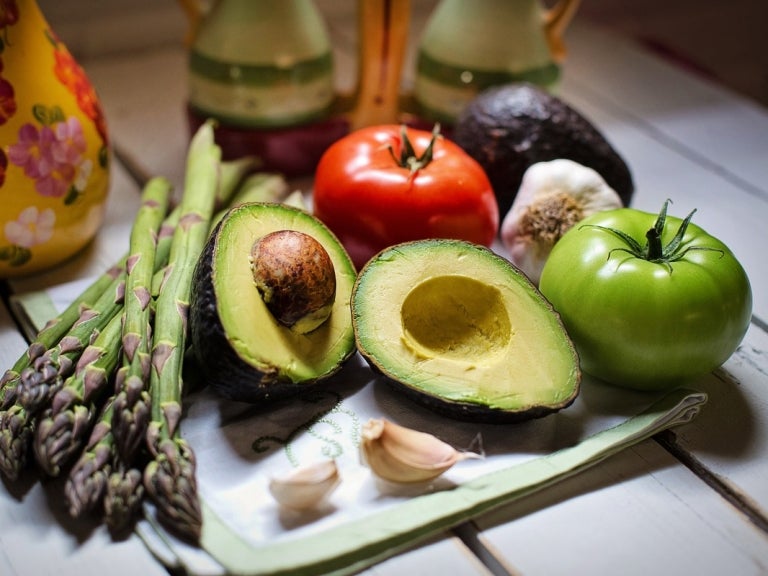
The Pitt School of Health and Rehabilitation Sciences (SHRS) offers two separate degree programs in nutrition that attract students with different career goals. Let’s dive in to learn more about their differences and find out which one is right for you!
Bachelor of Science in Nutrition Science (BS) Overview
The BS in Nutrition Science program is an upper division program that was developed because of a need for students to have a strong knowledge base in nutrition. However, their plan is not to become registered dietitians. Their interests lie in other health care fields: applying to medical school or physician assistant programs, or becoming a dentist, physical therapist or occupational therapist. The program also prepares students for a career in nutrition science research.
The NS BS is a science and evidence-based curriculum that gives students the necessary background to continue their studies in other health care fields, but with a solid base in nutrition science and food-related diseases such as diabetes and celiac disease, and nutrient deficiencies and how to manage them. The unique curriculum and small class sizes give NS BS students an advantage over other graduate or professional school applicants.
Dietitian Nutritionist Program (Accelerated MS, MS) Overview
The Dietitian Nutritionist Program is a graduate degree program accredited by the Accreditation Council for Education in Nutrition and Dietetics (ACEND) that combines supervised experiential learning with didactic coursework to prepare students to sit for the Registered Dietitian/Nutritionist (RD/RDN) credentialing exam. RD/RDNs may apply for licensure in Pennsylvania or credentialing in other states.
The Accelerated MS degree is an upper division program allowing students to begin the program during their undergraduate studies and accelerate their time to graduation and RD/RDN credentialing.
Registered Dietitians are the experts in the science of nutrition empowering people to optimize their health through food and nutrition. They work in a variety of settings, including health care, business and industry, community/public health, education, government agencies and private practice.

Nutrition Science students in the classroom
What is the Ideal Student?
Students have a real interest in the field of health and preventative care particularly through nutrition. The program curriculum includes biochemistry, genetics, physiology and microbiology so an aptitude for sciences is a must.
Dietitians today are looking at what's happening nutritionally at the biochemical level and at evidence-based research that improves individual and population health outcomes. Therefore, an aptitude for science is a must. Communication skills and food knowledge are also important, to translate and personalize evidence based information into foods and eating plans to assist clients in successful lifestyle changes. Whether one-on-one with a patient or leading a group, dietitians need to speak to a range of people with different levels of understanding and skills to empower them to prepare safe, healthy and culturally familiar meals.
Programs at a Quick Glance
- Upper division program, have 60 college credits before beginning program
- Starts fall term only
- Apply spring term of sophomore year
- 2 years (4 terms) to complete at junior and senior year level
- 120 total credits to graduate
- Residential program
- Accelerated or graduate degree program
- Starts fall term only
- 12-week rotation in specialty area of nutrition
- Residential only
- Three points of entry
- Qualified undergraduates
- Upper-division accelerated Master of Science program
- 60 college credits before beginning program in fall term
- 3 years (6 terms) to receive both BS and MS degrees
- 156 credits total to graduate
- Post-baccalaureate candidates
- 3 years (6 terms)
- Bachelor’s degree required
- 93-95 credits required to graduate
- Graduates of Didactic Programs in Dietetics (DPD)
- 2 years (4 terms) full-time only
- Graduate of Didactic Program in Dietetics required
- 60 credits total to graduate
- Qualified undergraduates

Nutrition Science student working as a summer research intern at the Neuromuscular Research Laboratory (NMRL)
What Can I do After Completing This Degree?
The undergraduate program in Nutrition Science provides a solid foundation for career opportunities in nutrition research, the food industry, public policy and public health positions. The degree’s curriculum also offers the flexibility to fulfill prerequisite coursework for graduate education in almost any health-related professional program such as medicine, physician assistant studies, dental medicine, physical therapy, occupational therapy or public health.
Graduates with their RDN can expect to find successful careers in:
- Hospitals, community wellness centers, children’s organizations, private practice specialty or functional medicine clinics providing medical nutrition therapy, acute care and health coaching.
- The nutrition industry doing evidence-based research, like focusing on various ingredients to develop or improve food products.
- Government regulatory agencies to identify what kind of nutrition regulations must be followed for the development of a product, or researching and evaluating guidelines and contributing to committees that aim to improve the health care for a given population.
Post-Graduation Success
Our students have been accepted into medical school, physician assistant studies programs and dental medicine programs. They have also been hired by the organizations where they did their practical experience.
Last year our students had a 99% pass rate on the RDN exam and over the years they have had a 100% employment rate. The need for dietitians is growing so the students are often hired before they graduate!

Dietitian Nutritionist students working in the SHRS Nutrition lab
Additional Reading
----------------------
Interested in learning more about these programs? Please reach out to our Enrollment Specialists at enroll@shrs.pitt.edu!
---
Published February 8, 2023
